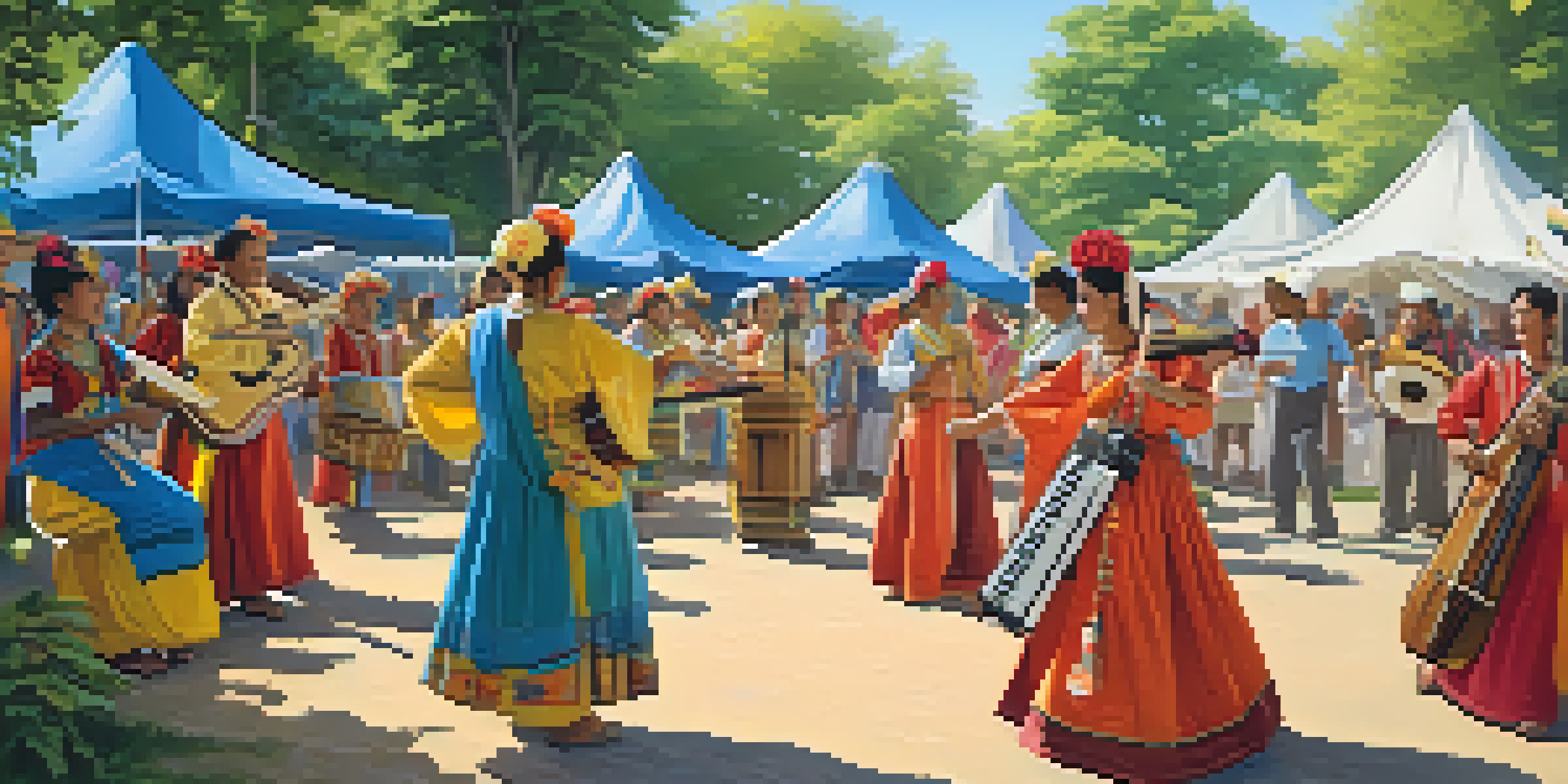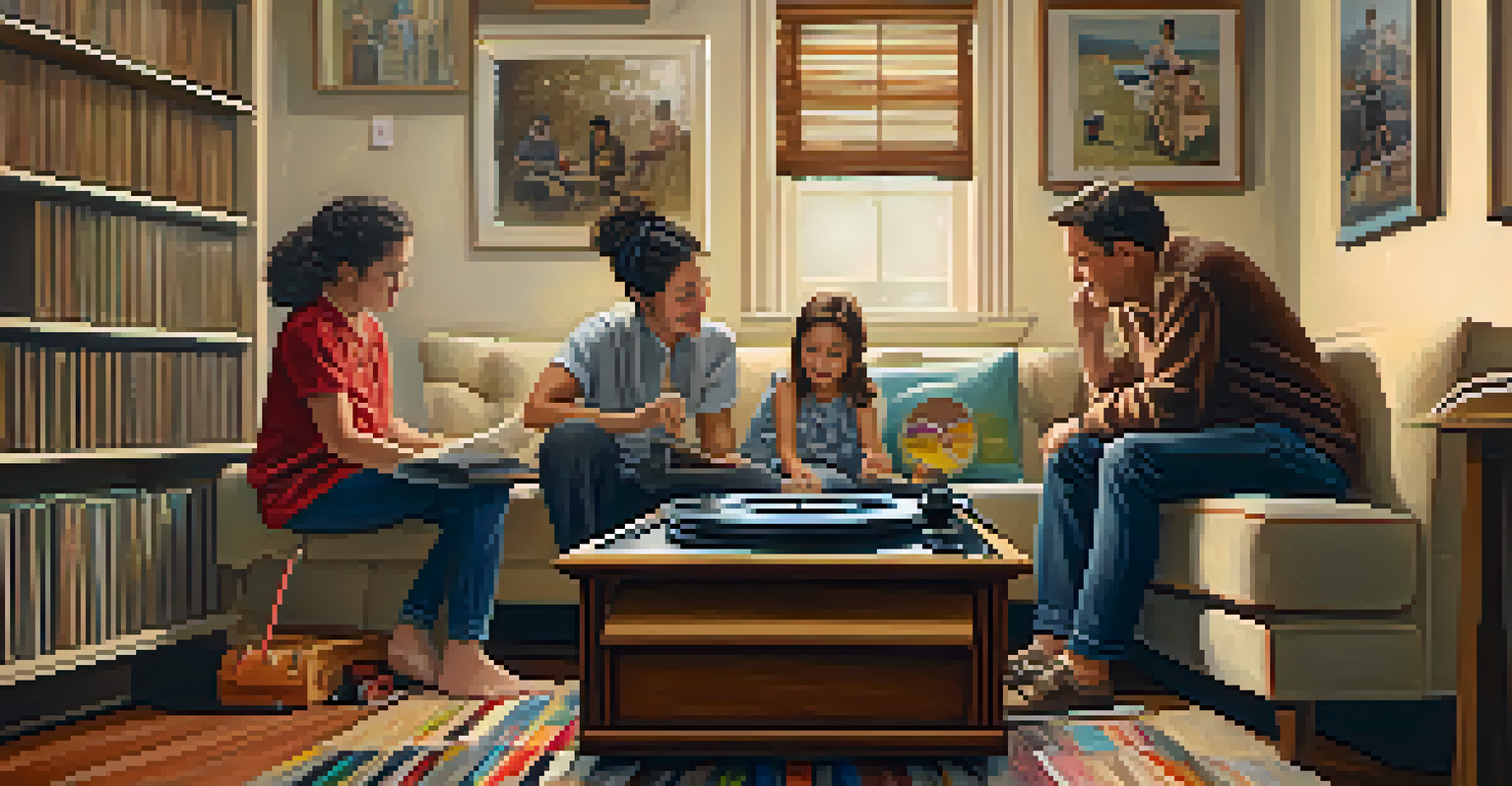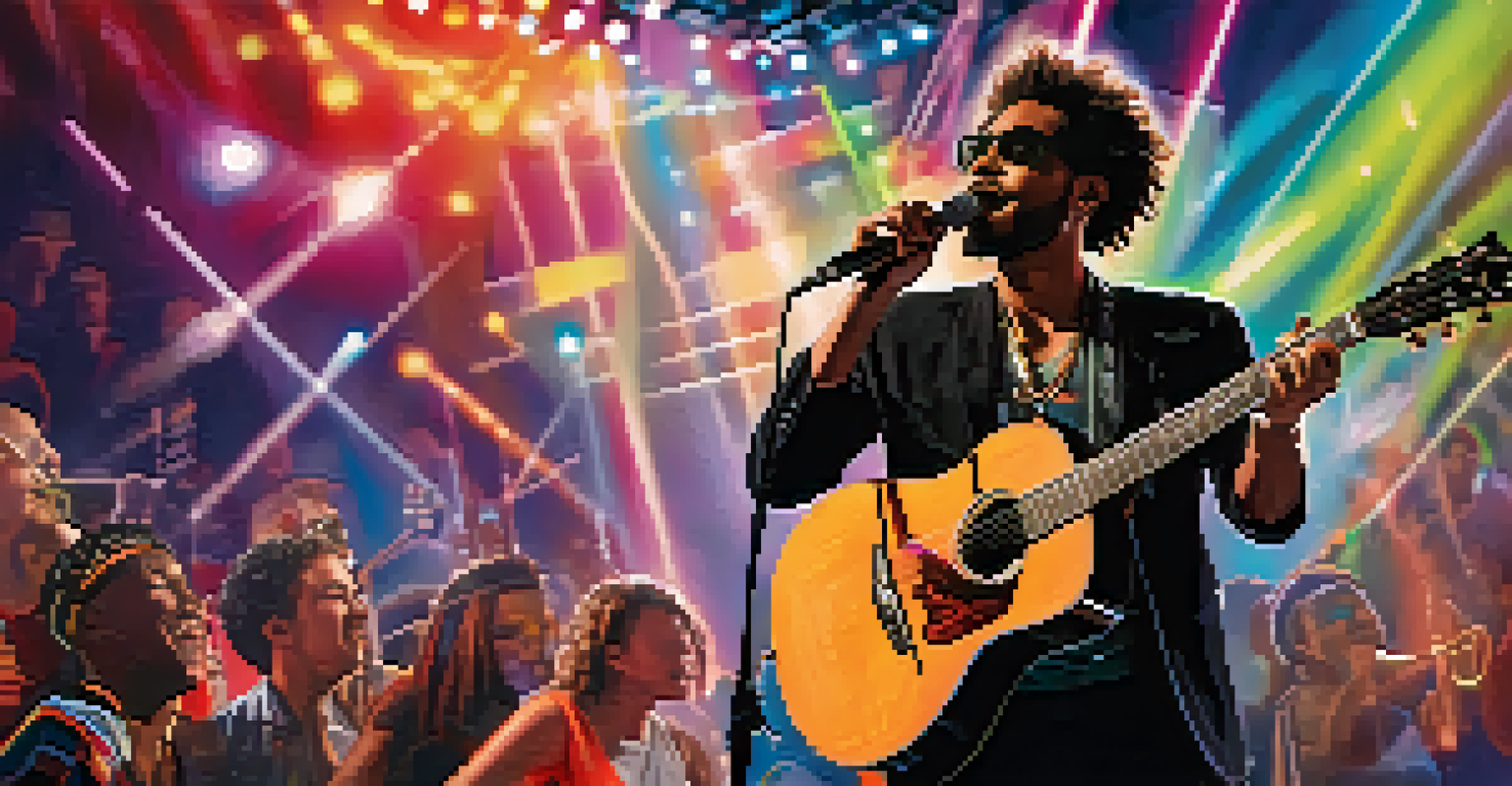The Relationship Between Music and Cultural Memory Across Ages

Music as a Vessel for Cultural Identity
Music has long been a powerful tool for expressing cultural identity. From folk songs that tell stories of heritage to anthems that rally communities, music encapsulates the essence of who we are. It serves as a bridge between generations, allowing traditions and values to be passed down through melodies and lyrics.
Music can change the world because it can change people.
Consider the impact of national anthems; they evoke feelings of pride and belonging. Each note and word resonates with shared experiences, helping to forge a collective identity among listeners. In this way, music acts as a cultural marker, grounding individuals in their roots while simultaneously connecting them to a larger narrative.
As we explore different cultures, we find that music often reflects societal norms, struggles, and triumphs. Whether it’s the rhythms of African drumming or the lilting melodies of Celtic music, these sounds carry stories that shape and define cultural memory.
The Emotional Power of Music in Memory Recall
Have you ever heard a song that instantly transported you back to a specific moment in your life? This phenomenon occurs because music has a unique ability to trigger emotions and memories. The brain's emotional centers are closely linked to musical stimuli, making it a potent tool for recalling personal experiences.

Studies have shown that music can evoke vivid memories, even in individuals suffering from memory-related conditions. For instance, Alzheimer's patients often respond positively to familiar songs from their past, highlighting how music can act as a key to unlock treasured memories. These moments underscore music's role in preserving personal and cultural histories.
By tapping into our emotions, music creates lasting impressions that shape our understanding of the world around us. It serves as a soundtrack to our lives, intertwining our personal stories with the broader cultural narrative, thereby reinforcing our collective memory.
Cultural Memory in Times of Change
Throughout history, music has played a crucial role during times of social and political change. Movements for civil rights, freedom, and social justice often have anthems that encapsulate the struggles and hopes of the people. These songs become rallying cries, uniting individuals in pursuit of a common goal.
Where words fail, music speaks.
For example, songs like 'We Shall Overcome' became synonymous with the civil rights movement in the United States. They not only provided comfort but also galvanized action, serving as powerful reminders of the collective struggle for equality. Such music contributes to cultural memory by marking significant moments in history.
Moreover, as society evolves, so does the music that reflects its changing values. New genres emerge, often blending traditional sounds with contemporary styles, creating a dynamic tapestry of cultural memory that evolves with time.
Music and Collective Memory in Communities
Communities often use music as a way to create and maintain collective memory. Events such as festivals, concerts, and ceremonies act as communal gatherings where shared experiences are celebrated through song. In these moments, music fosters a sense of belonging and reinforces cultural ties among participants.
For instance, the role of music in indigenous cultures often involves storytelling that preserves history and traditions. Through songs passed down orally, these communities keep their cultural heritage alive, ensuring that future generations understand their identity and values.
This communal aspect of music highlights its ability to strengthen bonds within a community. As people come together to sing, dance, and celebrate, they create shared memories that resonate long after the music fades.
The Role of Technology in Preserving Musical Heritage
In today's digital age, technology plays a vital role in preserving and sharing musical heritage. Recording devices, streaming platforms, and social media allow artists and communities to document their music and reach wider audiences. This accessibility ensures that cultural expressions are not lost to time but are instead celebrated and shared.
For example, platforms like YouTube enable traditional musicians to showcase their art to a global audience, fostering appreciation and understanding of diverse cultural expressions. This visibility can lead to a resurgence in interest in traditional music forms, revitalizing cultural practices.
However, the challenge remains to balance preservation with innovation. While technology helps in maintaining cultural memory, it also pushes artists to evolve their sounds, blending the old with the new, which can create a dynamic cultural landscape.
Music as a Tool for Education and Cultural Transmission
Education systems around the world recognize the importance of music in teaching cultural history and values. Incorporating music into curricula allows students to engage with their heritage in a meaningful way. Through songs, children learn about their ancestors' struggles, triumphs, and traditions, fostering a sense of belonging.
For instance, music classes often include folk songs that teach students about their cultural backgrounds. This hands-on approach not only reinforces learning but also encourages students to appreciate the richness of their heritage. By making music a part of education, we ensure that cultural memory is passed down effectively.
Moreover, music can bridge gaps between cultures, promoting understanding and empathy. When students explore music from various traditions, they gain insights into the lives and experiences of others, fostering a more inclusive mindset.
The Future of Music and Cultural Memory
As we look to the future, the relationship between music and cultural memory will undoubtedly continue to evolve. With globalization and technological advancements, we see a blending of musical styles and cultural expressions. This fusion creates new opportunities for cultural exchange and understanding.
However, it's essential to remain mindful of preserving traditional forms of music that are at risk of being overshadowed. By supporting local artists and cultural initiatives, we can ensure that diverse musical legacies endure and thrive despite the rapid pace of change.

Ultimately, music will remain a powerful force in shaping and preserving cultural memory. As we navigate the complexities of modern life, its ability to connect us to our past and to each other will continue to resonate, reminding us of our shared humanity.